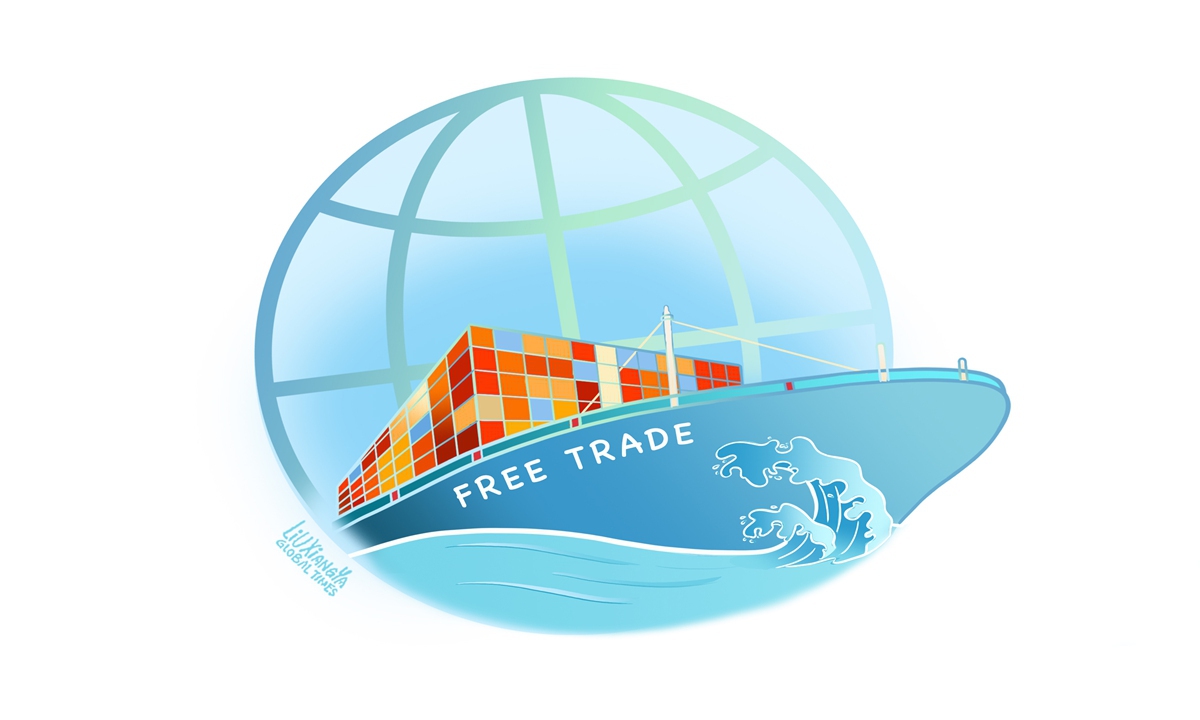
Illustration: Liu Xiangya/GT
Editor's Note:The recent high-level economic and trade talks between China and the US have offered the world some relief, and the world is watching what follows. Japan's top trade negotiator, Ryosei Akazawa, said on Tuesday there was no change to Tokyo's stance of demanding an elimination of US tariffs in bilateral trade negotiations.
In an interview with Global Times (
GT) reporter Xing Xiaojing, Yosuke Tsuyuguchi (
Tsuyuguchi), a professor in the Faculty of Economics at Teikyo University in Japan, said that China is the only major country without any weaknesses or dependent ties to the US, allowing it to negotiate on an equal footing. By engaging in active trade within a multilateral free trade system, all participating countries - including those beyond Japan and China - stand to benefit.
GT: Observing the course of the China-US negotiations, one can see that as the US repeatedly raised tariffs, China consistently maintained a "fight to the end" stance. As someone well-versed in China's economy, how do you view this series of developments between China and the US? What lessons might Japan and other countries grappling with tariffs draw from China's response to US tariff measures?Tsuyuguchi: In my view, China is the only major country without any weaknesses or dependent ties to the US. This marks a decisive difference from Japan and European nations. Therefore, even if the US were to unilaterally try to impose burdens on China, China is thought to be more able than Japan or Europe to oppose them with full dignity.
Furthermore, by negotiating with the US on an equal footing and securing tangible results, China will set the benchmark for Europe's and Japan's own negotiations with Washington. I believe that the harder China pushes in its talks with the US, the more concessions other countries will secure from Washington.
GT: The US tariff policy has placed Japan - despite its status as an ally - in an unavoidable predicament. In your view, how should Japan, under these circumstances, reduce its dependence on the US market and mitigate the risks arising from US policy uncertainty?Tsuyuguchi: Because Japan and the US are allies, recently, Japan assumed it could rely on the American consumer market for its exports without any issue. However, the implementation of US tariffs has undeniably upended that. And if Japan's access to the US market becomes constrained, it may look to boost exports to other countries and regions, which could in turn undermine the domestic industries of other countries.
For this reason, Japan must first focus on self-rescue and revitalizing its own consumer market. In other words, Japan should prioritize buying domestically made products and reducing its dependence on the US.
GT: In the context of deep economic integration between China and Japan, with the current Japan-US tariff negotiations at an impasse, what benefits would be brought to Japan and Japanese enterprises if they strengthen economic cooperation with China and expand into the Chinese market?Tsuyuguchi: Should Japan's exports to the US face constraints, boosting shipments to China - the world's second-largest market - could serve as a vital countermeasure.
I believe that if Japan and China each commit to stimulating their own consumer demand and deepen their cooperation by promoting mutual product imports, both Japanese and Chinese enterprises would benefit.
GT: As major economies, China and Japan can play a crucial role in jointly upholding the multilateral free trade system. Looking ahead, what further areas of economic and trade cooperation can the two countries pursue?Tsuyuguchi: Maintaining a multilateral free trade system is vital for both Japan and China. Both countries are members of the WTO and have concluded free trade agreements under the framework of the Regional Comprehensive Economic Partnership (RCEP). By engaging in active trade within a multilateral free trade system, all participating countries - including those beyond Japan and China - stand to benefit. As the world's main consumer markets, China and Japan, by deepening free trade under RCEP, can create new export opportunities for other member states.




